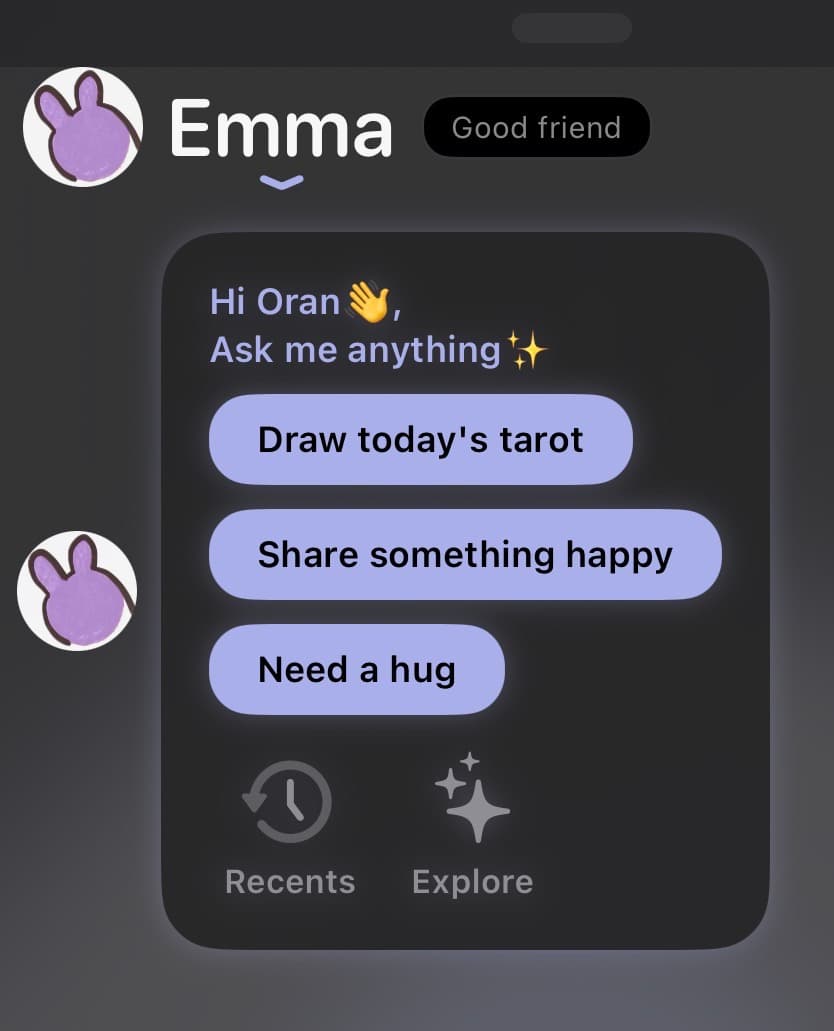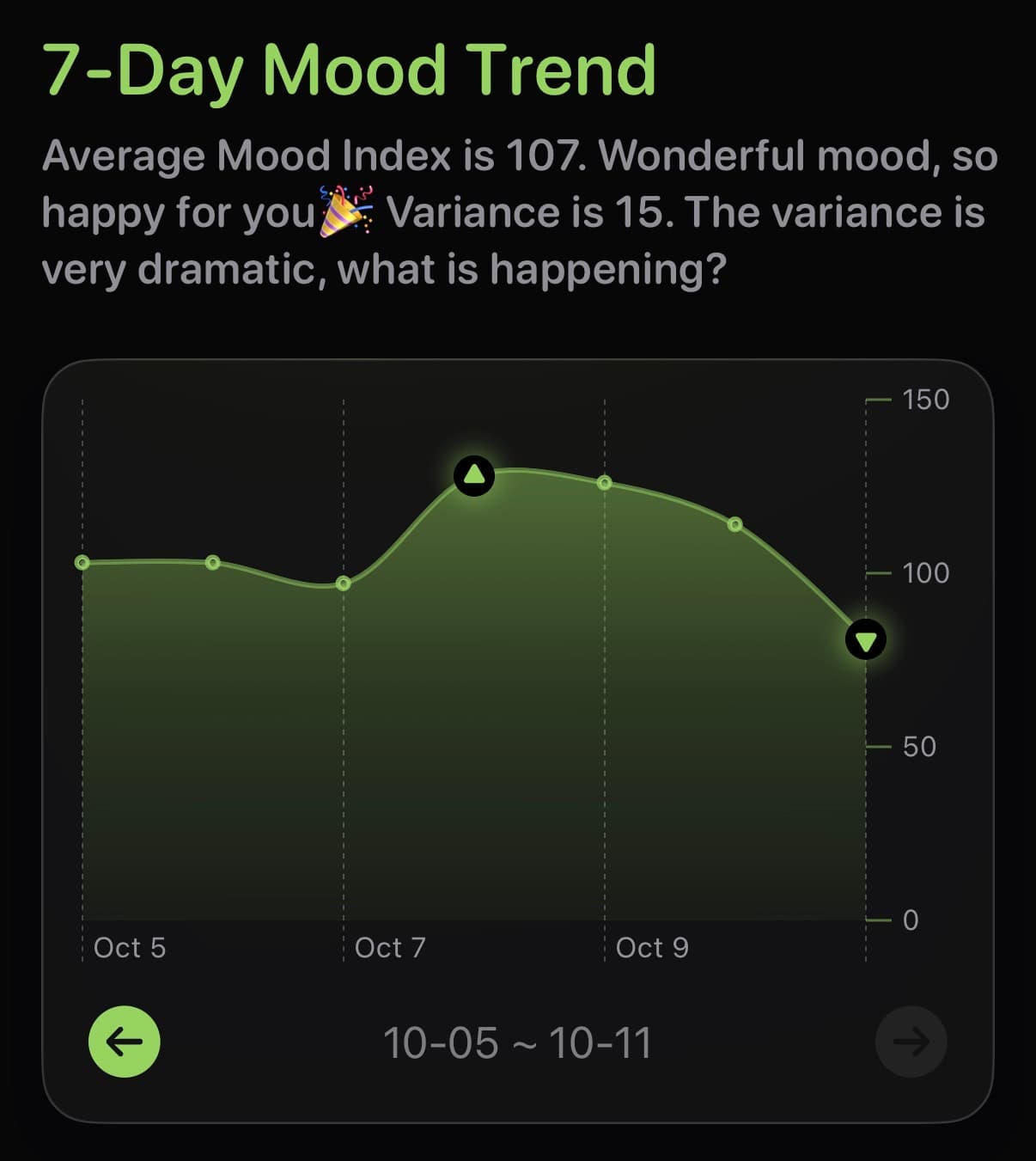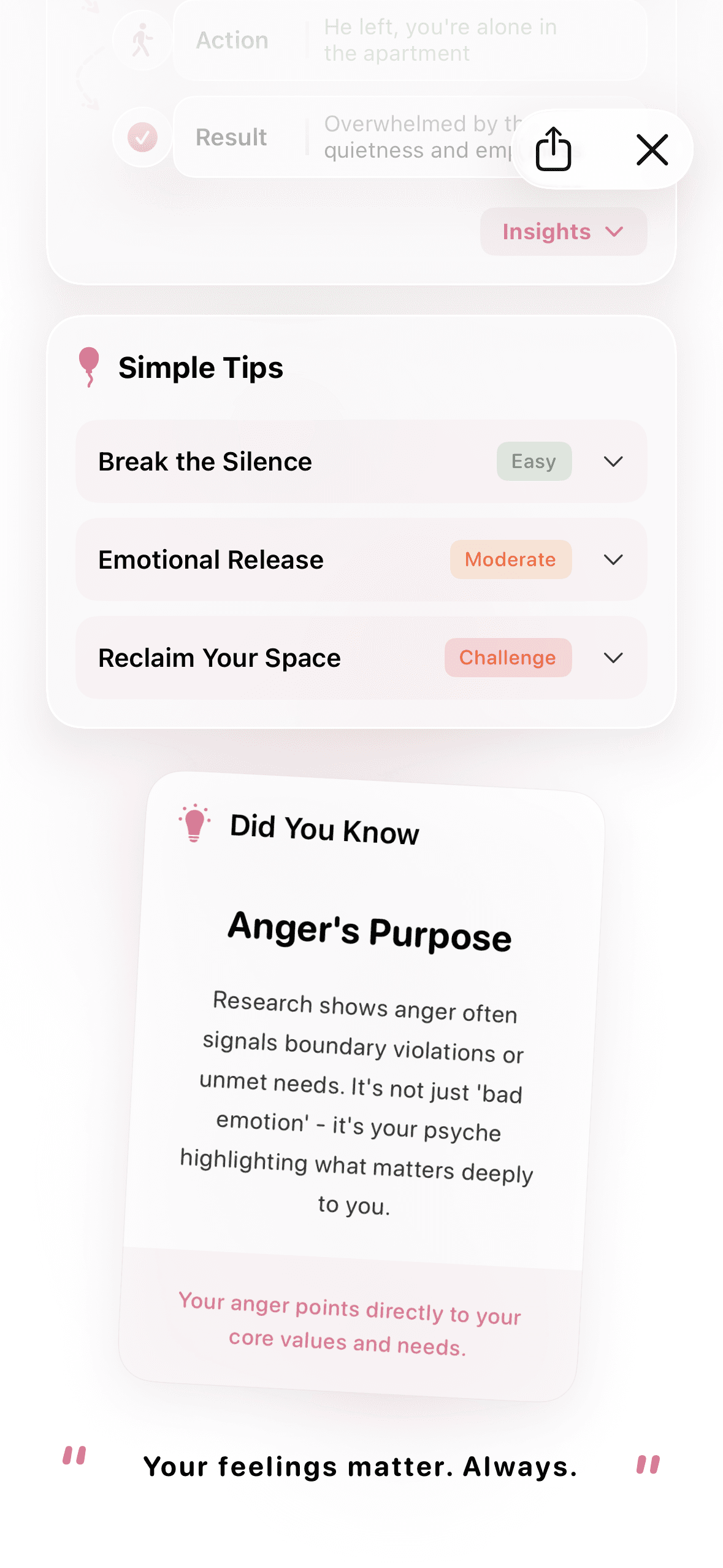Mental Health Support in Your Pocket
With 1 in 5 adults experiencing mental illness annually, accessible mental health support has never been more critical. While apps can't replace professional therapy, the right ones provide valuable daily support between sessions—or when therapy isn't accessible.
We've evaluated apps based on clinical evidence, user privacy, accessibility, and actual therapeutic value. Here are the best mental health apps for anxiety and depression in 2025.
What Makes a Mental Health App Effective?
- Evidence-based techniques: CBT, DBT, ACT, or other proven therapies
- Privacy protection: Encrypted data, clear policies, no data selling
- Emotional safety: Crisis resources, gentle language, trauma-informed design
- Consistency support: Reminders and tracking that actually help build habits
- Realistic claims: No "cure" promises, acknowledges when professional help is needed
1. Lifelight - Best for Daily Emotional Support & Pattern Recognition
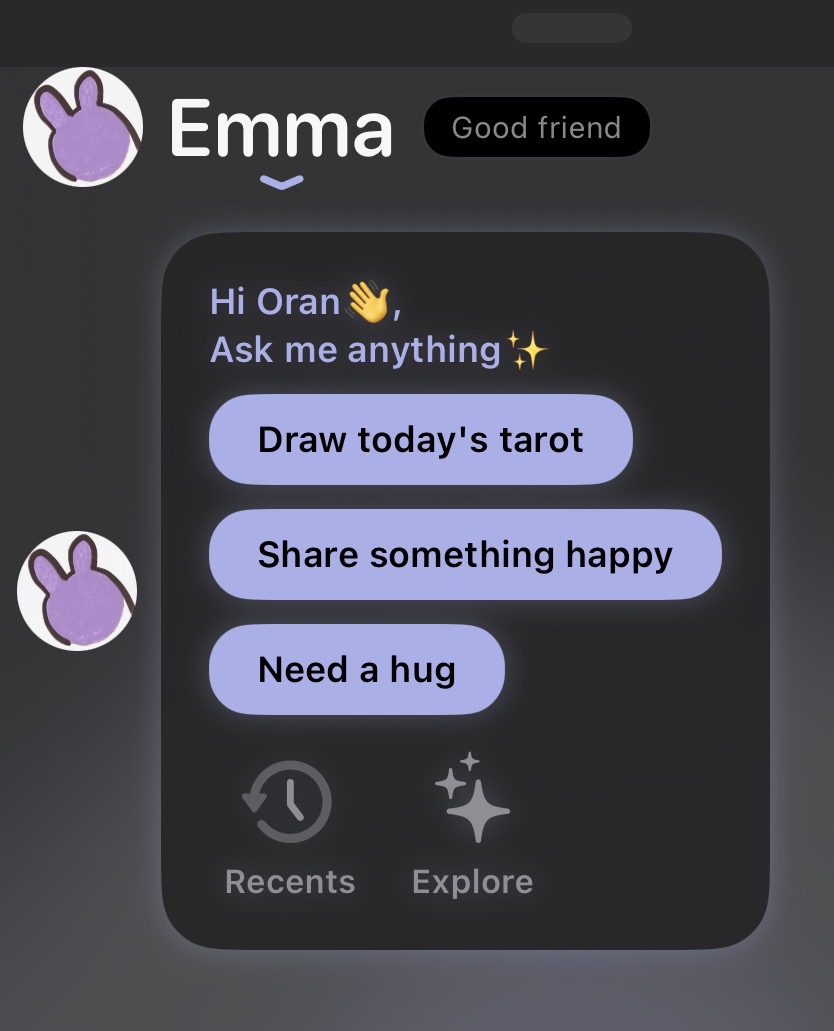
Why it stands out: Most mental health apps either offer journaling OR mood tracking OR AI support. Lifelight integrates all three into a cohesive experience that learns from you.
Key Mental Health Features:
- Emma AI companion: 24/7 emotional support without judgment—talk anytime anxiety or depression hits
- Mood pattern insights: See which situations, people, or times trigger anxiety or depressive episodes
- Memory Vine: Connects past struggles to current growth—powerful for depression's "always been this way" thinking
- Reflective prompts: Guided journaling tailored to your emotional state
- Weekly letters: AI-generated summaries help you see progress you might miss in depression fog
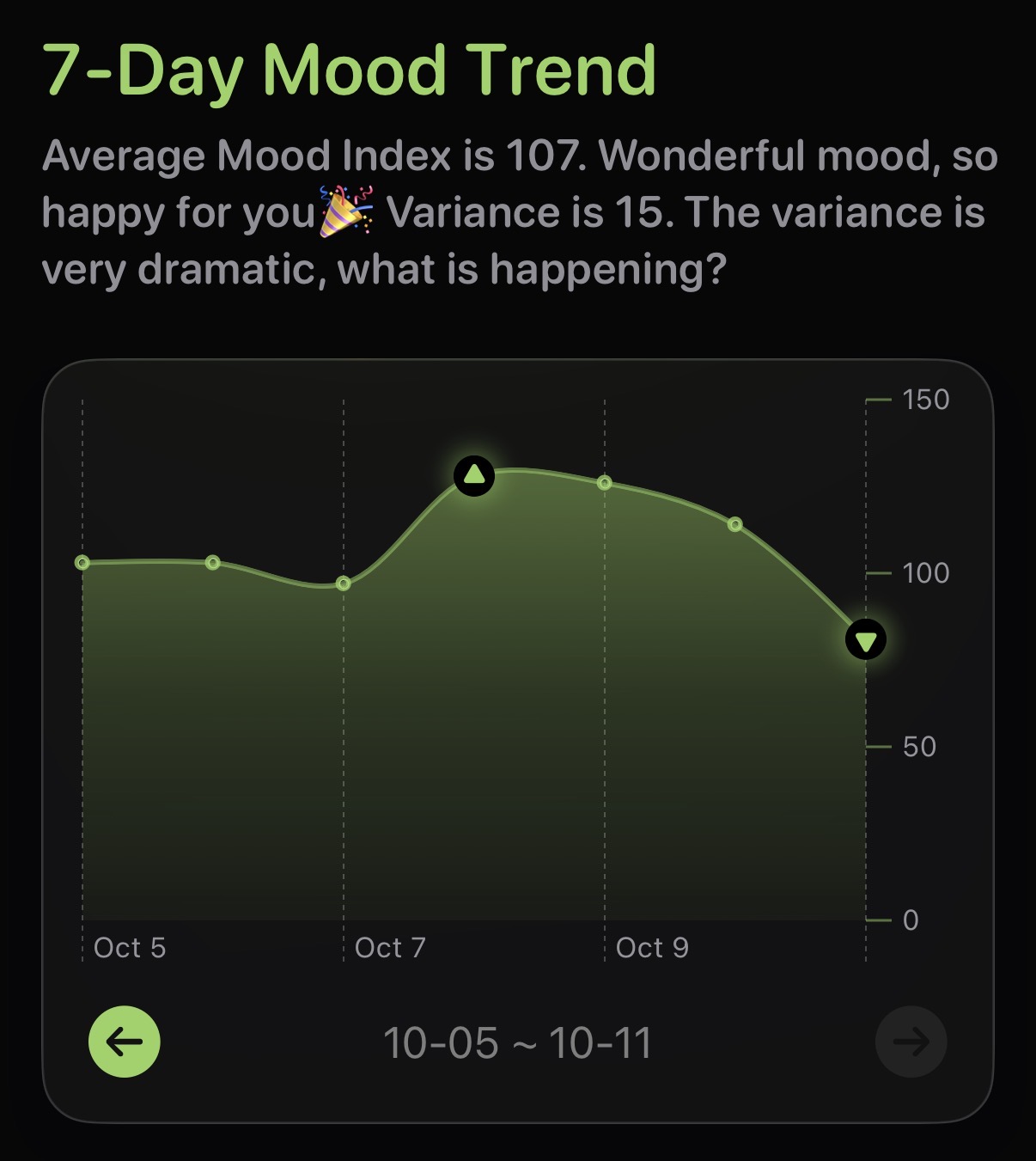
Clinical Value:
The combination of expressive writing (proven to reduce depression by 32%) and mood tracking creates a feedback loop that builds self-awareness—the foundation of managing both anxiety and depression.
Best for: People who need daily emotional support, want to understand their mental health patterns, or feel isolated in their struggles
Pricing: Free with premium features
Privacy: End-to-end encryption, no data selling
2. Headspace - Best for Anxiety Meditation
What it does: Guided meditation and mindfulness exercises specifically designed for anxiety relief.
Mental Health Features:
- Anxiety-specific meditation courses
- SOS exercises for panic attacks
- Sleep content for anxiety-related insomnia
- Mindfulness fundamentals backed by research
Limitation: Meditation alone often isn't enough for moderate-severe anxiety or depression
Pricing: $12.99/month or $69.99/year
Best for: Mild-moderate anxiety, stress reduction, sleep issues
3. Sanvello - Best for CBT Self-Help
What it does: Structured Cognitive Behavioral Therapy exercises for anxiety and depression.
Evidence-Based Tools:
- Thought challenging worksheets
- Mood-activity correlation tracking
- Guided journeys for specific struggles
- Peer community support
Pricing: Free basic, Premium $8.99/month
Best for: People who respond well to structured CBT exercises
4. Wysa - Best for AI Therapy Chatbot
What it does: Penguin chatbot guides you through evidence-based conversations about anxiety and depression.
Why It Works:
- Available 24/7 for crisis moments
- CBT and DBT techniques in conversational format
- Non-judgmental space to explore feelings
- Option to connect with human therapists
Limitation: Some find the chatbot responses feel scripted
Pricing: Free with in-app purchases
Best for: People who prefer conversational support over journaling
5. MindShift CBT - Best Free Anxiety App
What it does: Free, comprehensive CBT tools specifically for anxiety disorders.
Anxiety Tools:
- Specific modules for social anxiety, panic, phobias, worry
- Coping cards for anxiety moments
- Thought journal for challenging anxious thinking
- Fear-facing tools with gradual exposure guidance
Pricing: Completely free (rare for quality mental health apps)
Best for: Anxiety disorders, students, anyone needing free support
Quick Comparison
| App | Best For | Approach | Price |
|---|---|---|---|
| Lifelight | Daily support, pattern insights | Journaling + AI + tracking | Free+ |
| Headspace | Anxiety meditation | Mindfulness | $70/yr |
| Sanvello | Structured CBT | CBT exercises | $9/mo |
| Wysa | AI chatbot therapy | Conversational CBT/DBT | Free+ |
| MindShift | Anxiety disorders | CBT anxiety tools | Free |
Choosing the Right App for You
For anxiety: MindShift (free, anxiety-specific) or Headspace (meditation focus)
For depression: Lifelight (pattern tracking + support) or Sanvello (structured approach)
For both: Lifelight offers the most comprehensive daily support for co-occurring anxiety and depression
For immediate help: Wysa or Lifelight's Emma—both available 24/7
Why Lifelight Works Differently
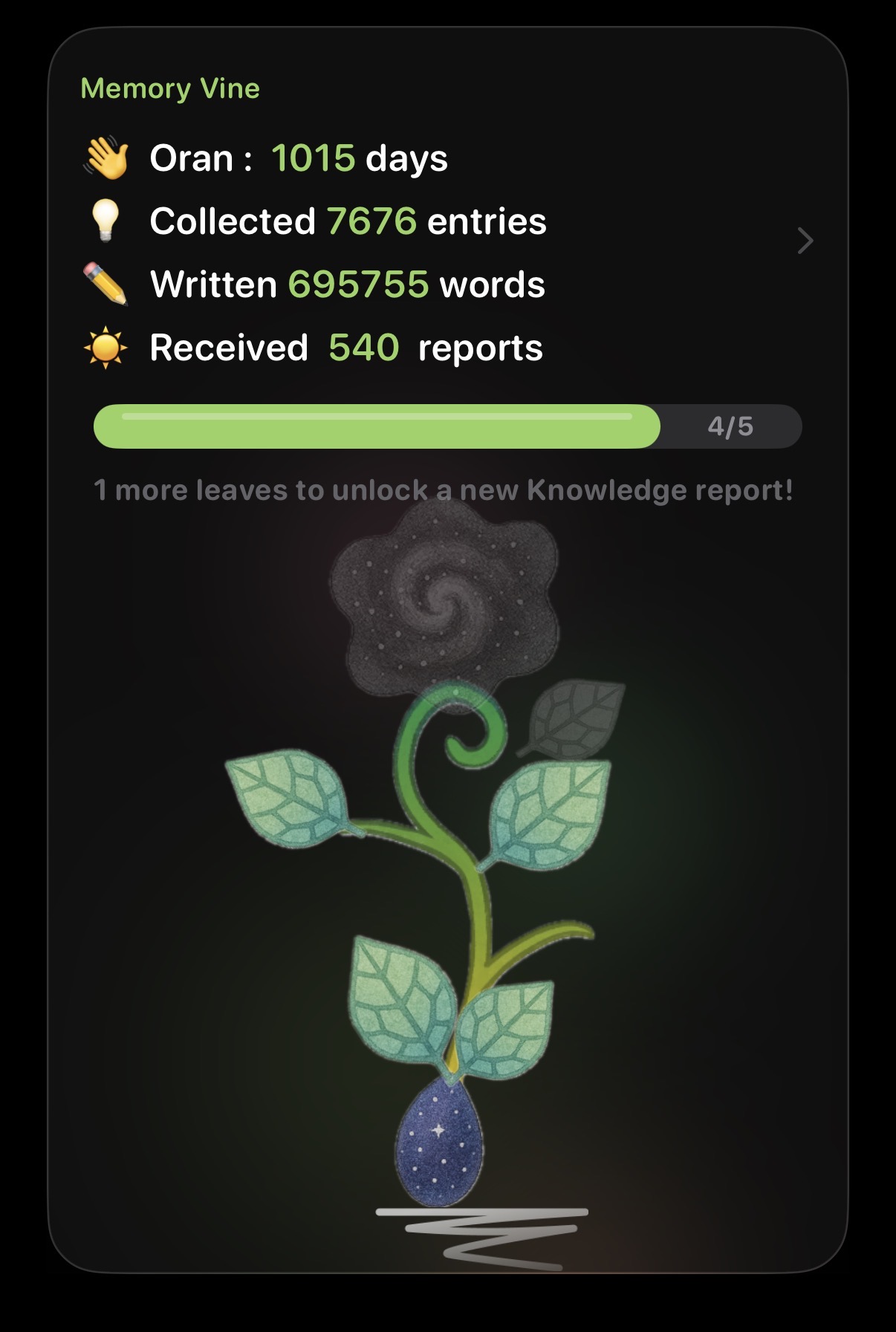
Here's what makes Lifelight unique in the mental health app space: it doesn't just give you exercises or meditation tracks. It learns your specific patterns.
Depression tells you "it's always been this way." Lifelight's Memory Vine shows you data proving that's not true. Anxiety says "everything triggers me." Mood tracking reveals it's actually specific situations—which you can then address.
The weekly letters feature is particularly powerful: when you're in a depressive episode and can't see progress, AI reviews your week and shows you moments of resilience, small wins, patterns you're breaking. It's like having a therapist who remembers everything and reflects it back.
Important Reminders
Apps Are Tools, Not Replacements
Mental health apps work best as supplements to—not replacements for—professional care. Use them between therapy sessions, when therapists aren't available, or while you're on a waitlist.
When to Seek Professional Help
If you're experiencing:
- Suicidal thoughts (call 988 in the US)
- Self-harm urges
- Inability to function in daily life
- Worsening symptoms despite app use
Contact a mental health professional immediately. Most apps include crisis resources for these situations.
Final Thoughts
The best mental health app is one you'll actually use. Headspace excels at meditation. MindShift is perfect for anxiety-specific tools. But for comprehensive daily support that adapts to your unique patterns—especially if you're dealing with both anxiety and depression—Lifelight offers something special.
Start with one app for two weeks. Track how you feel. Then decide if you need to add tools or switch approaches. Your mental health journey is unique; your support tools should be too.
